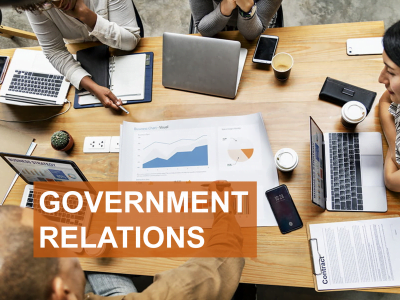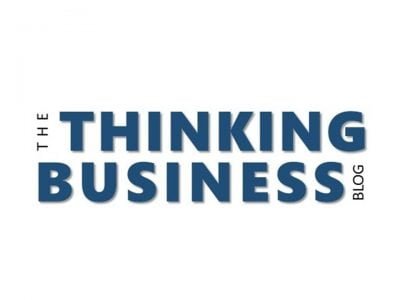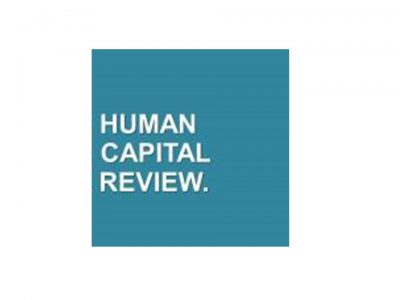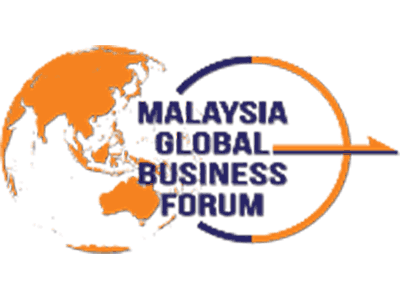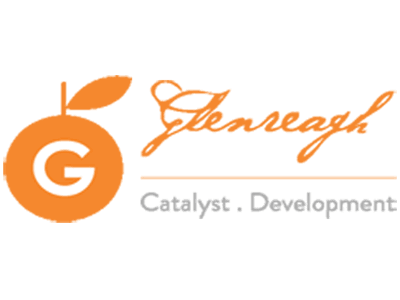- Findings indicate that Singapore’s healthcare leaders are prioritizing investment in artificial intelligence (AI) and are highly ambitious about shifting care delivery to the home over the next three years, but staff’s lack of experience with new technologies is impeding planning for more than half
- 49% of Singapore’s leaders expect implementing sustainable practices in healthcare will be among the primary priorities of their role in three years’ time
- Largest global survey of its kind features critical insights from almost 3,000 healthcare leaders across 14 countries on meeting the demands of today and their vision for healthcare three years from now
SINGAPORE – Media OutReach – 6 May 2021 – Royal Philips (NYSE: PHG, AEX: PHIA), a global leader in health technology, today announced the publication of its Future Health Index (FHI) 2021 Singapore report: ‘A Resilient Future: Healthcare leaders look beyond the crisis’. Now in its sixth year, the Future Health Index 2021 report is based on proprietary research across 14 countries, including Singapore, representing the largest global survey of its kind to analyze the current and future priorities of healthcare leaders worldwide.
Feedback from healthcare leaders – including executive officers, financial officers, technology and information officers, operating officers and more – explores the challenges they have faced since the onset of the pandemic, and where their current and future priorities lie, revealing a new vision for the future of healthcare. With a focus on patient-centred healthcare enabled by smart technology, their vision is shaped by a fresh emphasis on partnerships, sustainability and new models of care delivery, both inside and outside the hospital.
An optimistic outlook
Although still grappling with the pandemic, 84% of Singapore’s healthcare leaders are confident in their hospital or healthcare facility’s ability to deliver quality care in the next three years – which is higher than the confidence levels of healthcare leaders in Australia (66%), China (58%) and the average of those in the 14 countries that Philips surveyed (75%).
The vast majority (93%) also feel that Singapore’s healthcare system has shown resilience in how it has coped with the challenges of the COVID-19 pandemic.
“The past year has undoubtedly taken a significant toll on Singapore’s healthcare system. Frontline healthcare workers have faced greater pressure than ever before, while senior leaders have been tasked with leading their institutions in the most trying of times,” said Caroline Clarke, Market Leader and EVP, Philips ASEAN Pacific. “Yet the Future Health Index 2021 report highlights just how skillfully the country has risen to the challenge. It is encouraging to see Singapore emerging with such resilience and confidence for the future.”
Bold ambitions for shifting care from hospital to home; AI is a major focus for the future
The COVID-19 pandemic has accelerated radical shifts in care delivery for both patients and providers around the world and the report reveals that, as Singapore’s healthcare leaders consider what comes next, they are pragmatic about where and how care is delivered.
Healthcare leaders anticipate that, three years from now, on average about a quarter (26%) of routine care delivery will take place outside the walls of Singapore’s hospitals and healthcare facilities, up from around 20% today.
Singapore’s healthcare leaders are also highly ambitious about shifting care delivery to home settings. While those surveyed said that just 19% of routine care being provided outside of the hospital is currently delivered in the home, they predict that 45% will be delivered at home three years from now – a bold target, which is far higher than any of the other countries that Philips surveyed (17% 14-country average) and the APAC[1] average (18%).
Singapore is leading the way in championing AI, too; nearly three in four of Singapore’s healthcare leaders (71%) say that this is one of the digital health technologies that they are currently investing in – again far above the average healthcare leader across the 14 countries surveyed (36%) and in APAC (46%).
AI investment in Singapore is currently focused primarily on administrative tasks like automating documentation, scheduling appointments and improving workflow, above clinical and diagnostic applications. However, this looks set to change in the near future, as Singapore’s healthcare leaders plan to invest in AI for clinical decision support (35%), to predict outcomes (33%) and to integrate diagnostics (28%).
Skills gaps must be addressed to achieve digital transformation
Despite these bold ambitions, staff inexperience and staff shortages could impede progress if not urgently addressed.
Philips’ research found that staff’s lack of experience with new technologies ranks among the top internal barriers to future planning in Singapore, with around half of Singapore’s healthcare leaders (52%) citing it as a current impediment, whilst one in four (25%) say that staff shortages are also holding them back.
Lack of training is also cited as the biggest barrier to the wider adoption of digital health technologies by nearly half of Singapore’s healthcare leaders (47%), followed closely by difficulties with data management (43%) likely relating to high volumes of data and a lack of clarity around ownership.
“The pandemic has confirmed the viability of remote care, and it is equally encouraging to see that Singapore is placing such a big focus on AI for the future. However, it is vital that the country’s hospitals and healthcare facilities invest in adequate training and address staff shortages to move beyond purely administrative applications of these game-changing technologies and unlock their full potential,” added Caroline Clarke.
Industry poised for unprecedented move on sustainability
Philips’ Future Health Index 2021 report also finds that implementing environmental sustainability practices is set to become a dominant trend in Singapore, and globally, within the next three years.
While not a current concern for many, 49% of Singapore’s healthcare leaders expect to prioritize the implementation of sustainability practices in their hospital or healthcare facility three years from now, up from just 2% today, and in line with the trend seen across healthcare leaders in the 14 countries surveyed (58% three years from now, up from 4% today globally).
Since 2016, Philips has conducted original research to help determine the readiness of countries to address global health challenges and build efficient and effective health systems. For details on the Future Health methodology and to access the Future Health Index 2021 report in its entirety, visit: https://www.philips.com.sg/a-w/about/news/future-health-index/reports/2021/healthcare-leaders-look-beyond-the-crisis.html.
[1] APAC countries surveyed for FHI 2021: Australia, China, India, Singapore
About Royal Philips
Royal Philips (NYSE: PHG, AEX: PHIA) is a leading health technology company focused on improving people’s health and well-being and enabling better outcomes across the health continuum – from healthy living and prevention, to diagnosis, treatment and home care. Philips leverages advanced technology and deep clinical and consumer insights to deliver integrated solutions. Headquartered in the Netherlands, the company is a leader in diagnostic imaging, image-guided therapy, patient monitoring and health informatics, as well as in consumer health and home care. Philips generated 2020 sales of EUR 19.5 billion and employs approximately 77,000 employees with sales and services in more than 100 countries. News about Philips can be found at www.philips.com/newscenter.
#Philips

Services
Stakeholder mapping, analysis, engagement and communication needs to be detailed to avoid business losses or even worse, a crisis. How can you do this effectively to prevent failure? ...
Data-driven business decisions have never been as crucial, especially in this era. MGBF leverages off, technology, experience and market presence to aid businesses in making accurate decisions. ...
MGBF provides comprehensive strategic advice and results-focused solutions to solve clients' problems in business-government relations so they can focus on their core business. ...
A critical business challenge is meeting the right decision-makers and potential buyers through the best channel and platform. How will you improve your business competency? ...
Upcoming Events
In this episode of 'A Working Lunch with Nordin', MGBF's Nordin Abdullah and regional commentator Eddin Khoo will discuss the biggest threats and opportunities for businesses as we look to manage change in the South China Sea.
This MGBF Roundtable will feature thought leaders form Japan, Australia, Singapore and Malaysia dealing with the critical issues of manipulation of public listed companies and government and their financial impacts.
A series of networking sessions with various business associations and trade organisations exploring high-value opportunities for business leaders and entrepreneurs looking to build the relationships that matter.
This integrated event will include a forum, dedicated business matching, site visits, a gala dinner and a round of golf. Aptly themed, the focus will be on regional food security issues and trends in the context of the supply chain, agriculture technology and trade regulations and policies.
MGBF In The News
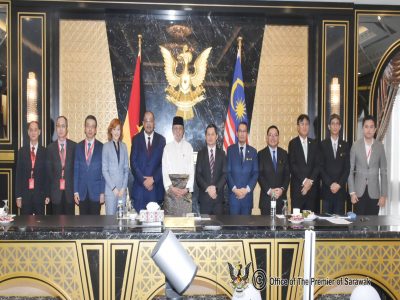
Planet QEOS and China Machinery Engineering Corporation (CMEC) are interested in investing RM10 billion to co-develop advanced Megawatt peak (MWp) agrovoltaic in Baram, to further boost Sarawak’s green energy initiative and food security. Sarawak Premier Datuk Patinggi Tan Sri Abang Johari Tun Openg was briefed on Friday by both the […]

Last week SPM results came out, 373,974 aspirants who have been waiting patiently over the last few months would now know their fate. Some 10,109 have received all A’s, the golden standard of academic success and the ticket to those looking to study the “more advanced” subjects in university. Proudly, […]
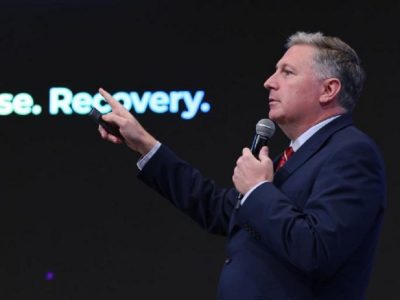
The classic knee-jerk reaction is to say, fire the coach, change the leadership of associations, and reduce the funding till they start performing better. This kind of negative reinforcement may work for kindergarten children, but we are dealing with high-performance adults – individuals much further along in their psychological and […]
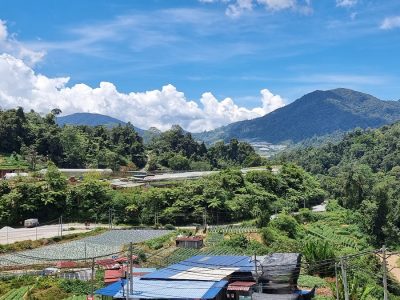
Since its earliest tea plantations in 1929, Cameron Highlands has grown to become a key player in the agricultural landscape of Malaysia, producing 40 per cent of all vegetables grown. Despite Malaysia shifting its economic focus away from agriculture, the industry remains imperative for food security and the livelihoods of […]

Although at first glance the travel industry and the agricultural sector appear to have nothing in common, they actually share more than meets the eye. The economic benefits of tourism to the agricultural sector can be multiplied several times over. “Tourism brings the end consumers closer to the source, which […]
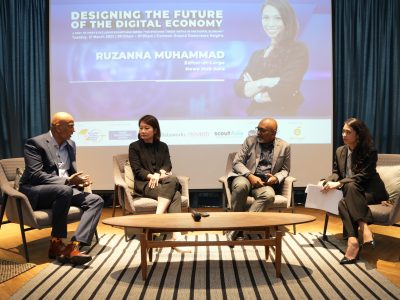
The Malaysia Global Business Forum (MGBF) recently held a high-level roundtable themed ‘Designing the Future of the Digital Economy’, attended by industry leaders and business associations. The guest of honour was Yang Berhormat Syerleena Abdul Rashid, the Member of Parliament (MP) for Bukit Bendera in Penang. The MP’s Special Session […]

The Malaysia Global Business Forum (MGBF) will be hosting a roundtable on ‘Designing the Future of the Digital Economy’ on 23 February 2023. It is the culmination of the first three MGBF Exclusive Roundtable Series titled ‘The Evolving Threat Matrix in the Digital Economy’ held throughout 2022. According to the […]
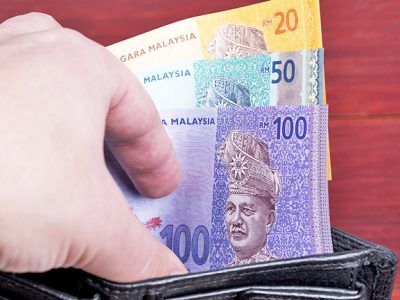
The Founding Chairman of the Malaysia Global Business Forum (MGBF), Nordin Abdullah, today spoke on Bernama TV’s leading English talk show, The Brief, hosted by Jessy Chahal, on the topic of a stable political reality and what that means for the Malaysian economy. Nordin said, “The first thing that it […]

More than 1,100 years ago, Muhammad ibn Musa al-Khwarizmi was developing the mathematical formulas that we know today as algorithms which now have become so intertwined with the business fortunes of global media giants and the very fabric of geopolitics. A series of recent high level international reports have revealed […]

KSK Land has been recognised by the Malaysia Global Business Forum (MGBF) for its role in attracting high net-worth individuals to Malaysia post-pandemic. The first challenge in investor attraction is “selling” the country. In the context of Asia, Malaysia is competing with some very established investment destinations. The second […]

Malaysia, in particular Kuala Lumpur, continues to position itself as a regional centre to do business, educate a family and enjoy a global lifestyle. One company, KSK Land, has taken the lead in positioning itself and the city of Kuala Lumpur as a property investment destination for the global citizen […]
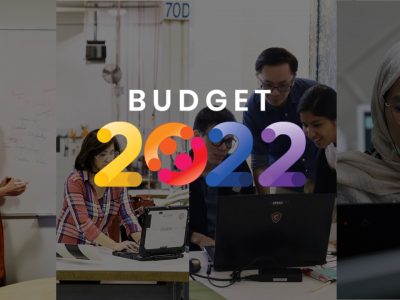
The upcoming budget represents an opportunity to build resilience in the critical sectors that will form the backbone of the country’s future-facing economic ambitions. This however needs to be achieved in the context of managing the community sectors most impacted by COVID-19 over the past two years. The Keluarga Malaysia (Malaysian Family) […]

Malaysia Global Business Forum (MGBF) has moved to support the creative economy as the overall economy moves into a recovery phase following the COVID19 pandemic. As a step in the direction of normalcy, the MGBF has agreed to host the art exhibition “I Know You’re Somewhere So Far” by one […]
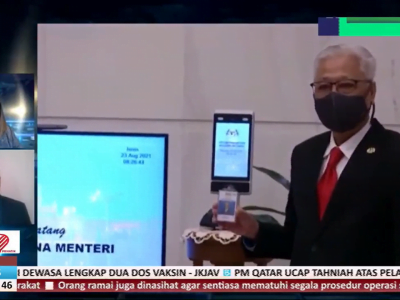
Congratulations to Datuk Seri Ismail Sabri Yaakob for taking up the mantle of the ninth prime minister of Malaysia. There is nothing normal about the situation; it could not have been scripted but it has kept the spectrum of media, mainstream and social, gripped. The first order of business for […]

In a stirring speech to the nation, President Joseph R. Biden, Jr. stamped his brand of leadership on the presidency, in his first act as the 46th president of the United State of America, it signaled several shifts. Perhaps the weather was foreboding with snow falling before the ceremony that […]

KUALA LUMPUR, 6 July 2022 – As the global economy continues to deal with unprecedented levels of disruption caused by the pandemic and the conflict between Russia and Ukraine, the convergence of energy security and food security issues has become a front-of-mind issue faced by policy makers and consumers alike. […]

KUALA LUMPUR, 23 June 2022 — Malaysia Global Business Forum (MGBF) ties up with scoutAsia to ensure that businesses are equipped with deeper regional insights. The past two years has seen a massive shift in the way businesses are conducted with digitisation, digitalisation and automation continuously being adopted to improve […]
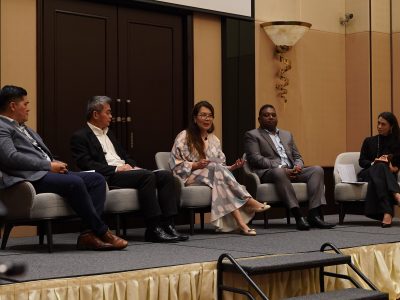
KUALA LUMPUR, 25 May 2022 – The Malaysia Global Business Forum (MGBF)’s exclusive roundtable on ‘Security Concerns in Critical Value Chains’ was held in a hybrid setting yesterday at the Eastin Hotel Kuala Lumpur. The guest of honour was Yang Berbahagia Tan Sri Dato’ Seri Rafidah Aziz, former minister of […]
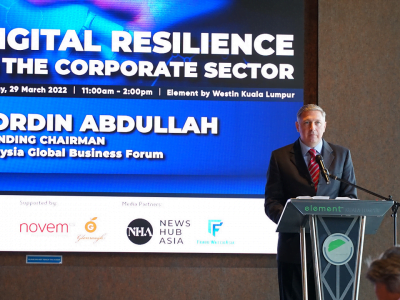
We live in the age of crisis. At the heart of any crisis is the threat of rapid change. Change too deep or too wide that the current coping mechanisms for an individual, corporation or government are unable to remain resilient. An unwelcome paradigm shift, like the proverbial spider, that […]




